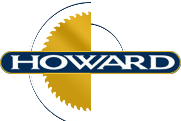The degree to which aluminum alloys are machinable hinges upon the mechanical properties as well as the machining processes used. Because aluminum chips easily and is easy to shape, aluminum alloys are considered more machinable than other metals like steel and titanium. Aluminum is abundant and cost effective. They are a great material to use in both prototype and production runs. Aluminum’s machinability results in prolonged tool life, which is a cost savings to manufacturers. At Howard Precision Metals, we offer an extensive range of aluminum products suitable for a wide range of machining applications.

Photo by Norbert Buduczki on Unsplash
Aluminum Alloy Applications
Because aluminum alloys are lightweight and machinable, they are used to manufacture a wide range of products. You’ll find aluminum in cell phones, machine parts, automobiles, kitchen utensils, and window frames. Depending on the series of aluminum, the machinability, strength, and hardness will vary a great deal. Keep reading to find out about aluminum series and alloys.
Characteristics of Aluminum Alloys
Aluminum, atomic number 13, is a soft metal that makes up about 8% of the contents of the Earth’s crust. The 3rd most abundant element, right after oxygen and silicon, aluminum is readily available. Because aluminum is a soft metal, different alloying elements are used to make aluminum plate, sheet, and bar products. Each alloying element added to aluminum changes the performance of the end product. The series of aluminum is what is used by the Aluminum Association to organize and define these alloys . The following classes of aluminum alloys have varying properties and characteristics. Each series lends itself to specific industries because of the performance of the alloys.
Aluminum Alloy Series 1xxx
This series consists of 99% pure aluminum with silicon and iron representing the majority of the alloying elements. the 1XXX series aluminum alloys are highly ductile. Because of this, these aluminum alloys are used mainly in the electrical and chemical industries. In addition to being highly form-able, this aluminum series offers excellent corrosion resistance and low mechanical properties. The high thermal and electrical conductivity, partnered with the excellent work-ability makes it a premier choice for electrical applications. Common products made from 1000 series aluminum include aluminum bus bars and heat sinks.
Aluminum Alloy Series 2xxx
Copper is the primary alloying element in this series. Thus, these alloys are also commonly referred to as “copper alloys”. These aluminum alloys possess excellent machinability. When heat-treated, these alloys have mechanical properties similar to, sometimes better than, mild steel. Corrosion resistance, weldability, and brazeability are all rated as poor for this series. However, strength is high and workability is good. Less corrosion resistance is present in these alloys when compared to other aluminum series, which is why cladding is sometimes utilized in 2xxx series aluminum sheet. At Howard Precision Metals, we stock a healthy selection of 2024-T351 plate. This alloy is a very popular choice in the aerospace industry, mainly in the home-build aircraft sector.
Aluminum Alloy Series 3xxx
With manganese as the primary alloying element, the 3xxx series of aluminum alloys possess excellent form-ability. Generally not heat-treated, 3000 alloys are used as general purpose alloys when work-ability and moderate strength are required.
Aluminum Alloy Series 4xxx
With silicon as the primary alloying element, these aluminum alloys have substantially lower melting points without resulting in brittleness. Because of this unique characteristic, 4xxx series are used in welding wire. These aluminum alloys also become dark grey when anodic oxide finishes are applied, which makes them appealing in a wide variety of architectural applications.
Aluminum Alloy Series 5xxx
The aluminum alloys in this series use magnesium and manganese as the primary alloying elements. The addition of these elements result in alloys with a high tensile strength and great form-ability. These alloys also possess good corrosion resistance. Hence, series 5000 aluminum alloys are used in transportation, bridges and marine applications.
Aluminum Alloy Series 6xxx
This series is arguably the most versatile of the aluminum alloy series. The 6xxx series alloys have silicon and magnesium as the principle alloying elements. These heat treated alloys possess good form-ability and corrosion resistance while offering medium strength. One of the most popular alloys in this series is 6061, which is available in sheet, plate, and extrusions. At Howard Precision Metals, we stock 6061-T651 plate and 6061-T6 sheet. This alloy and temper category has been heat treated and stretched for stress relieved. We also stock extrusions in 6061-T6 and 6061-T6511. 6061 aluminum, as well as other 6000 series aluminum alloys, are also used to produce custom aluminum extruded shapes. Because of the versatility of this series, you will find them in applications including architectural products, piping, electrical components, and consumer goods.
Aluminum Alloy Series 7xxx
Primarily known for strength, the 7xxx series aluminum alloys contain zinc as the primary alloying element while also containing copper, chromium, and magnesium. These heat treatable alloys are very high strength with only average machinability. One of the most popular alloys in this series is 7075. The wide range of available tempers of 7075 account for a vast array of mechanical properties. For example, 7075-T651 aluminum plate has a yield strength of 500 MPa and is heat treated. Whereas, 7075-O is not heat-treated and has a maximum yield strength of 140 MPa. 7075 is also known under additional trade names in the industry such as: Ergal, Fortal Constructal, and Zicral. This alloy is also commonly used for mold making. 7000 series mold alloys include but are not limited to: Contal, Alumould, and Hokotol. Common applications of this aluminum alloy series include marine, automotive, defense, and aviation.
Since 1928, Howard Precision Metals has been providing exceptional customer service. With a wide range of aluminum plate and extrusions available and in stock, the team at Howard Precision Metals easily serve the needs of various industries including: medical, aerospace, hydraulic, machinery manufacturing, pneumatic, robotic automation.
For more information, contact Howard Precision Metals today at 800.444.0311 or request a quote on our website.


